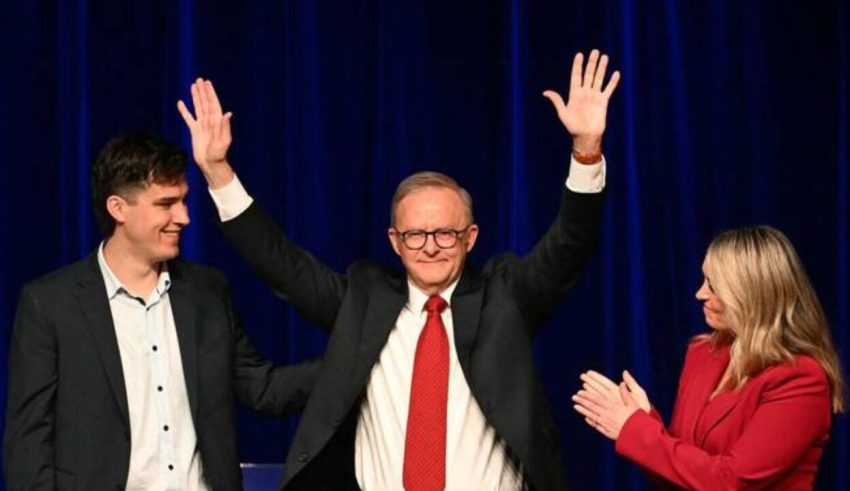
Anthony Albanese has entered the Labor pantheon.
While the count is still preliminary, Labor looks to have beaten the two-party preferred result of Kevin Rudd in 2007 (52.7 per cent), of Bob Hawke in 1983 (53.2 per cent), Gough Whitlam in 1972 (52.7 per cent) and Ben Chifley in 1946 (54.1 per cent).
Rudd, Hawke, Whitlam, Chifley. A list of Labor greats that Albanese would be happy to rub shoulders with.
You have to go back to the wartime government of John Curtin to find a better Labor two-party preferred result.
As of Sunday morning, Labor has won at least 85 seats, with another three likely wins.
The government is leading in another five seats, meaning it has a credible pathway into the mid-90s.
The opposition has at least 36 seats and a pathway to the mid-40s, but will end up with less than half of Labor’s seat total.
The Coalition’s catastrophe is perhaps most evident in Tasmania, where they have suffered a swing of more than 8 per cent. The Coalition now holds no lower house seats on the Apple Isle.
Capital city pain for the Coalition
The Liberal Party has also been wiped out of metropolitan Adelaide and most of Melbourne and they’ve gone backwards in Sydney, Perth and Brisbane.
To return to government, the Liberals need to work out how to win back voters in the cities.
Three years ago, the Coalition bled support in urban areas. It lost all of its seats overlooking Sydney Harbour, and seats in wealthy parts of Melbourne and Perth.
That problem has deepened now. Most of the independents who claimed those seats have, with the benefit of incumbency, strengthened their support. The hung parliament scenario that may have put an increased spotlight on them — perhaps drawing them closer to a Labor minority government — has not come to pass.
Peter Dutton’s clearly telegraphed strategy was to focus on regaining territory in outer metropolitan areas, perhaps hoping that the inner-city independents would self-combust and that would encourage their base to come home. That strategy has spectacularly failed.
Menzies MP Keith Wolahan, who looks to have lost his seat, told Insiders this morning that it’s clear his party has “an issue in urban Australia”.
“Most people live in cities, so we need to turn our minds to that like we have never done before,” he said. “We need to really dig deep and think about who we are and who we fight for and who makes up Australia.”
The swings to the government are larger in the capital cities than in the country, and the swing is broadly consistent across both the inner and outer metropolitan areas: just under 4 per cent.
What lessons will be learned?
Labor is welcoming at least six new Queenslanders to the caucus room, including two who have defeated members of the Greens and one regional seat: Leichhardt in the far north.
The government’s biggest winner of all is Ali France, who managed after three attempts to unseat now-former opposition leader Peter Dutton.
These are some serious gains in a state where Labor has experienced massive struggles federally.
But it’s also worth noting that this is still a state where the Liberal-National Party dominates.
It’s the only state in the country where the Coalition is currently ahead in two-party preferred terms, and the opposition still holds a majority of seats in Queensland.
Where does Coalition power remain?
So, as they cast around for a new leader, look at where power lies in the Coalition party room.
A large chunk — nearly half — of the opposition’s lower house MPs in the next parliament hail from Queensland.
The other challenge is to win back the cities, without much representation there.
The Liberals come out of this election far more wounded than the Nationals, which, on the latest count, are only at risk in two seats.
So the country party will presumably grow its numerical influence in the joint party room in the next parliament.
We will have to wait to see what that means for the direction the opposition chooses to go, and the lessons it chooses to learn from this loss.


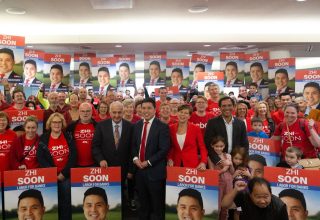
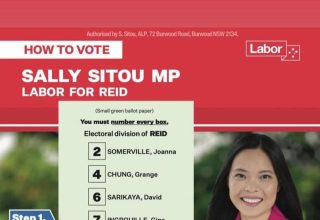
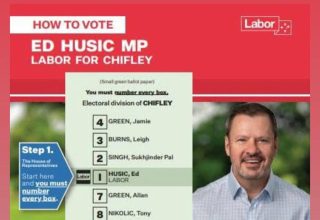
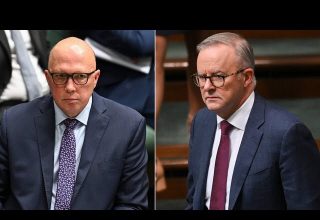
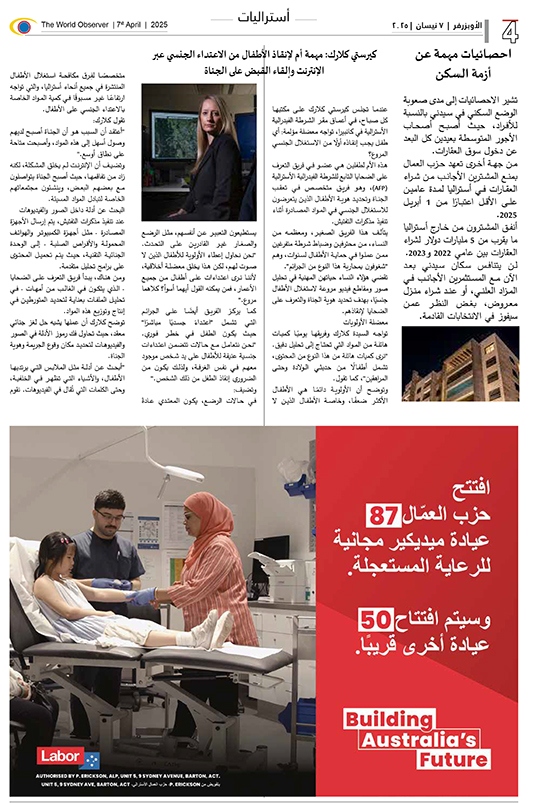
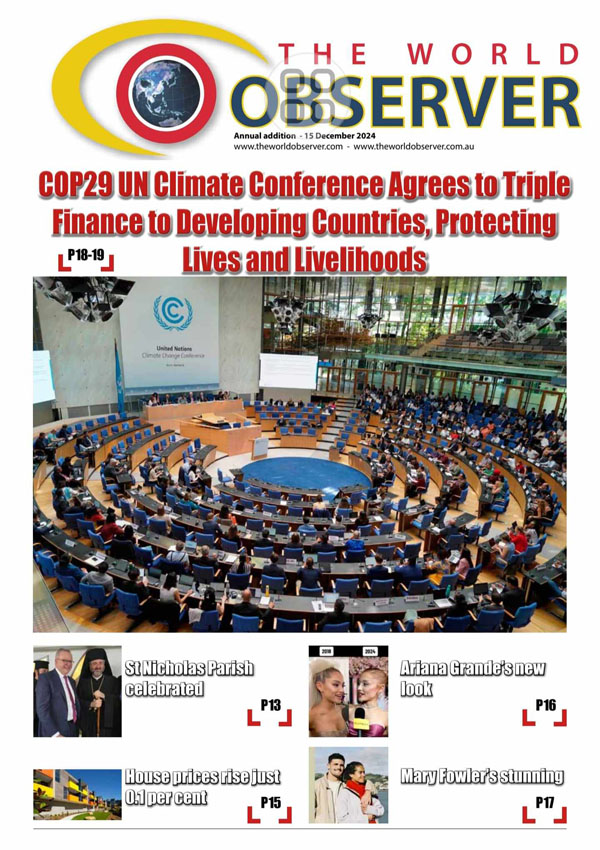
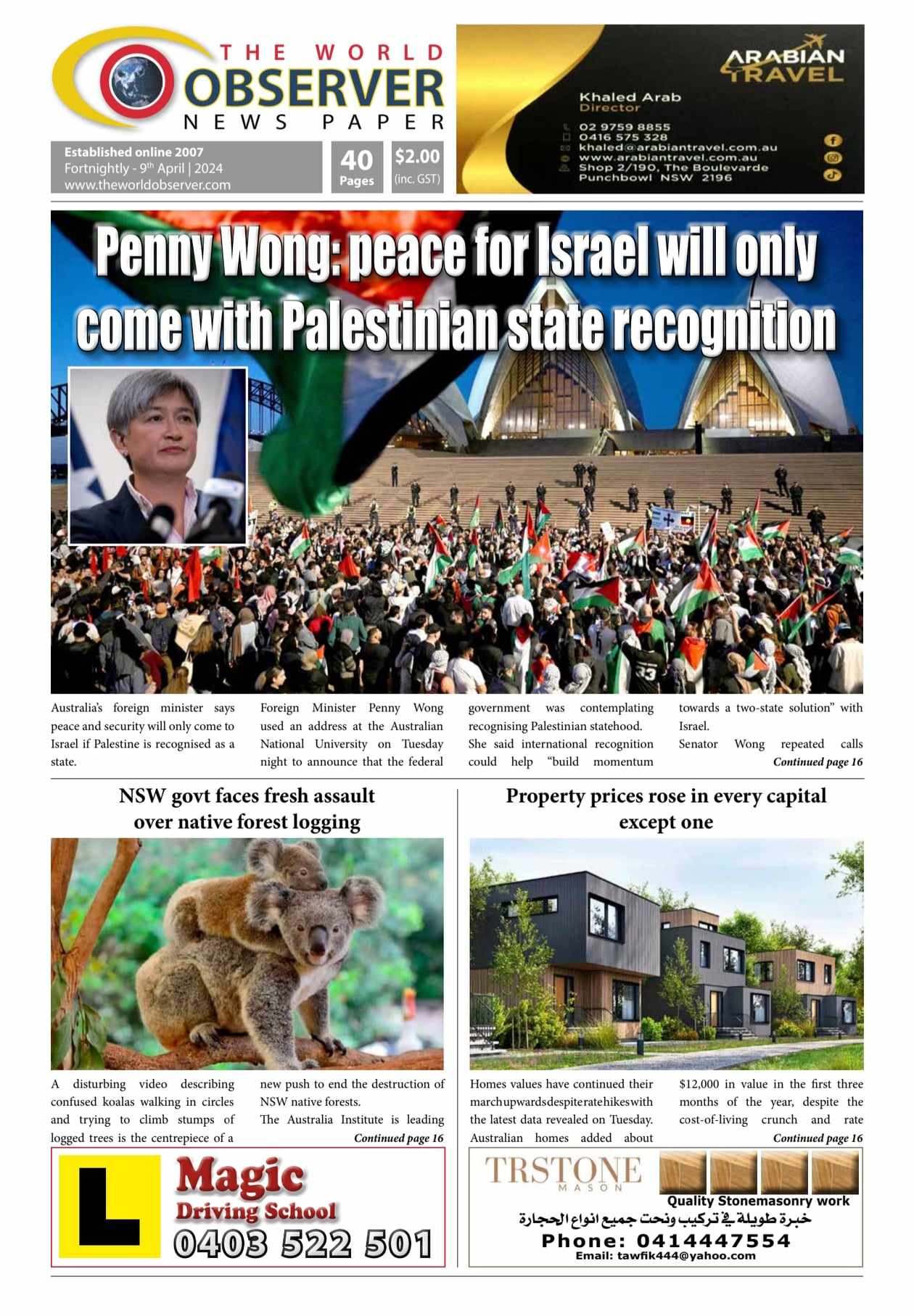

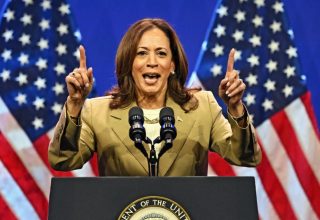

























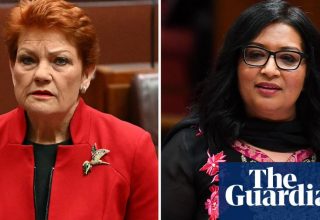

 The World Observer Media produces a daily online newspaper, a daily Arabic online newspaper and a monthly printed Arabic/English magazine and a weekly printed Arabic/English newspaper.
The World Observer Media’s mission is to entertain and educate all generation from the Ethnic Communities in Australia, who are interested in local, national and foreign information.
The World Observer Media produces a daily online newspaper, a daily Arabic online newspaper and a monthly printed Arabic/English magazine and a weekly printed Arabic/English newspaper.
The World Observer Media’s mission is to entertain and educate all generation from the Ethnic Communities in Australia, who are interested in local, national and foreign information. 


